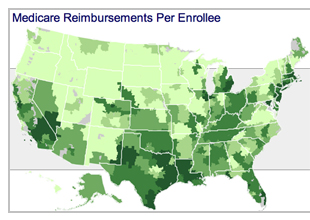I just read a polling result that said three out of four Americans now favor health care reform. That’s all well and good, but I bet you that at least three of every four who said they favored reform also believed that it meant they would soon be getting health care for free, or that Obama would somehow find a way to soak the rich to pay for everyone else. You know, Obama waves his magic wand, and soon you can just walk into the doctor’s office and walk out with free treatment and free medicine, or you you can just check into the hospital, get all fixed up and never hear from their accounting department.
I’d say that the vast majority of those favorable respondents to the poll are going to be rudely awakened under “reformed” health care when they find they must buy the insurance themselves or, if they get it at work, pay taxes on it as income. Plus, they’ll be shocked when they’re told by some faceless bureaucrat in D.C. that the service or medicine they want isn’t cost effective and thus they can’t have it.
Anyway, without tackling doctors and hospitals and putting them on restricted, set budgets, there’s no way anyone in D.C. can make health care as we know it “affordable.” It’s all a big hoax (unless you’re on Medicaid because you’re dirt poor, then it’s both “affordable” and “free”).
The Dartmouth Atlas of Health Care, a massive study of health care in every region of the country, tracked Medicare costs per patient per city and region over time. The researchers found that, in areas with more hospitals and more specialized testing facilities, physicians ordered more tests, jacking up the costs often needlessly. In contrast, in areas (rural, etc.) where there was no glut of test facilities, costs went down while residents often got better care.
Sure enough, by doing away with both duplicative and needless tests and office visits, you can begin to lower costs around the country, or at least even them all out, but this is where that faceless bureaucrat comes in: Someone has to dictate what can’t and can’t be done and what will and won’t be paid for, or doctors and patients will continue to avail themselves of everything at their disposal.
That’s the dirty little “R” word that no one dare utter in D.C.–rationing. It’s the lynchpin, obviously, of any nationalized health reform; everything sinks without it.
Anyway, the Dartmouth Project is interesting to study. There’s a link to the text explanation in the title above, and you can click on the map image to open up an interactive tool to compare health care costs region by region and city by city. A good way to while away some idle time at work anyway, so go for it.


